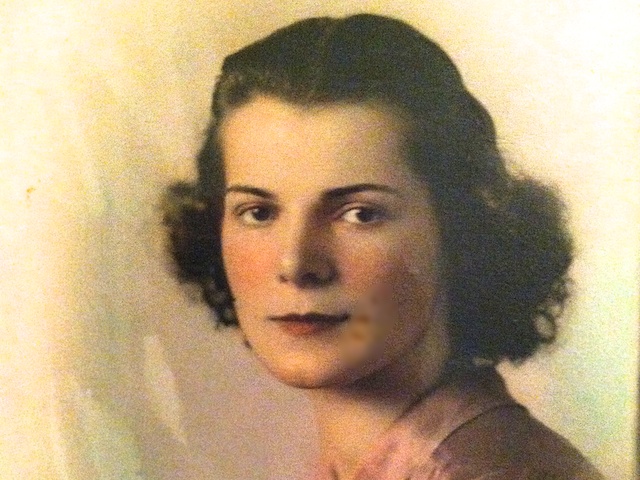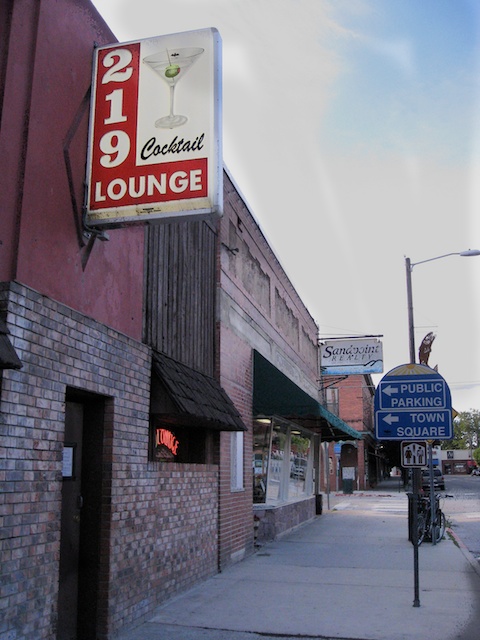Gin Fever: Part V – Gin as Medicine
If botanicals and herbs can be used for medicinal purposes, what better way to preserve that medicine for year-round usage than by steeping those botanicals and herbs in pure alcohol? Ever wonder why Mary Poppins was so adamant that "a spoonful of sugar helps the medicine go down"? Because after you steep medicinal herbs into grain neutral spirit, bottling that healing power for usage long after the plants themselves would have expired, there's nothing like a little sweetness to make that highly-herbaceous formula go down smoothly. See Chartreuse, Zwack Unicum, and many other long-standing herbal liqueurs as examples of popular spirits whose roots are steeped (no pun intended) in medicinal origin.
Gin is like an herbal liqueur without the sugar–just the herbs and the booze. So where does it come from? There's no debate that the origins of gin, or jenever, begin in Holland, but who exactly came up with the idea? The above picture shows Dutch chemist and alchemist Franciscus Sylvius, often credited with discovering the medical merit of juniper-infused spirit, but there seems to be serious disagreement about whether this is or isn't the case. Whether or not Sylvius actually invented jenever, and whether he actually invented it as a type of medicine, is irrelevant at this point. Gin's history of medical usage is irrefutable–it simply does the trick in some instances.
Wikipedia's gin entry notes that: "By the mid 17th century, numerous small Dutch and Flemish distillers (some 400 in Amsterdam alone by 1663) had popularized the re-distillation of malt spirit or malt with juniper, anise, caraway, and coriander, which were sold in pharmacies and used to treat such medical problems as kidney ailments, lumbago, stomach ailments, gallstones, and gout." Regardless of whether it actually did work, it was prescribed as medicine it its early manifestation. Yet, we know that gin did function in one very serious situation. The combination of gin with quinine is one of the most famous examples of alcohol as medicine in the fight against malaria.
Returning to our friend Iain Gately and his fantastic book Drink, let's look at what happened when the British Empire expanded into India:
The Indian market also influenced the way in which Britons consumed their spirits. India was administed from Calcutta, where malaria, typhoid, hepatitus, and various other killers were endemic. The local water had a reputation for unwholesomeness worse than that of raw sewage. It was a time-honored maxim of the expatriate community that alcoholic beverages were the only safe drinks, and that they were consumed with vigor. Every evening, they would participate in the ritual of the 'chotaped,' during which they protected themselves against malaria with a dose of quinine, whose bitter, astringent flavors were made more palatable by mixing it with gin.
Ever wonder who Schweppes was named after?
The therapeutic part of the combination was improved by Jacob Schweppe, a manufacturer of aerated waters, which launched an Indian quinine Tonic in 1870 and exported it to its place of inspiration. It was immediately popular as the perfect partner for gin and a taste for this medicinal mixture was carried back to the UK by retiring empire builders, where the gin and tonic was added to the list of 'traditional' British drinks.
Quinine protected against mosquitoes, and nothing tasted better with quinine than gin. In this case, a shot of gin helped the medicine go down. There are many examples throughout history (including American Prohibition) where alcohol, or the addition of herbs to alcohol, has been seen as having medical efficacy. If you want living proof of gin's effectiveness as a health-related supplement to daily living, I give you no better example that my own grandmother.

This is Helen Felber. She is my mother's mother. She is 93 years old, still drinks a gin cocktail every day, and is still going strong today in Sandpoint, Idaho. She's still sharp as a tack, physically fit, and prolific in her activity. What's her secret? Gin, or at least that's what she claims. My grandmother was a bartender for many years and gin martinis were her specialty. I sat down for an interview with her yesterday to gain her insight into gin and its many medical qualities.
David: Hi Omi, I was wondering if you could tell me what your gin consumption is like now that you're in a retirement center with round-the-clock help.
Helen: Here we only have a libation maybe two or three times a year. Wine, you know? We had a party tonight to celebrate the new facility manager. It's not really something we do often. Maybe just a small glass here and there.
David: So how often are you drinking gin yourself?
Helen: Between you and me?
David: Yes.
Helen: Every day.
David: Oh good.
Helen: I believe gin is the elixir of life. Just recently I saw an old Charles Dickens movie and one of the things I read about these situations is that women in those days–you know how people were poverty stricken–and you had these bars in basements, and the women all drank gin. I'll stand corrected, but I think it was invented in Holland, and it told in these stories that a lot of these women lived practically on gin. I always remembered that. These prostitutes and such were in the bars, hanging around, and gin could be had for like five cents a glass–this was years ago, and I've never been a drinker myself–VO was my drink at the time–but I had one gin martini almost every day.
David: So if (Seagrams) VO was your drink why did you switch over to gin?
Helen: Well...I don't know. I guess it was because I had a great reputation behind the bar as being a great gin martini mixer and I felt I had to live up to that. I like gin better than I do anything else nowadays, but I never have more than one drink.
David: So you would make gin martinis, but you weren't necessarily drinking them?
Helen: No, I had a reputation for being a great martini mixer, but not a drinker of martinis. Still, I always keep a bottle of gin around. We get orange juice here in the home everyday, so I save my orange juice and then dump in some gin and have a gin and juice.
David: (laughs quietly)
Helen: I'm serious, however, when I say you shouldn't drink to excess. I think gin is healthy for you if you don't drink too much of it.
David: Well, it's supposed to be full of medicine.
Helen: Well, I'm 93 years old and I had the nurse here just the other day for my ear infection and he said, "For someone who's 93 years old I would never dream that you're that old." Because I'm still healthy and strong, you know? Maybe it's just my imagination, but that's what I think. You've been to my old home. For more than ten years I would go out on to my deck every evening and have my martini. I never had more than one, however. I never wanted to be drunk.
David: So when did you start in the bar business?
Helen: I came into Sandpoint around 1960 after coming from Spokane. My girlfriend owned a bar up here, but due to liquor laws I had to establish residency for one year in order to be a bar owner, so I took a job with Northern Lights–the electric company here. I had been coming up just to visit. In any case, I ended up buying into her bar–the 219 here in Sandpoint.

David: How long did you operate the 219 before selling out to new ownership?
Helen: I would say six or seven years.
David: Were you the bartender most of the time?
Helen: We had three shifts. There were three owners so we split that time up.
David: So who taught you how to make a martini?
Helen: I just had a knack for it. I was never a drinker. I never have been a drinker. But I do know how to make martinis and I do make a martini everyday.
David: So if people came to the 219 did they come just for you and to have your specially-made martinis?
Helen: Yes, they would come in on my shift to have a martini.
David: And if you weren't there?
Helen: Well, it wasn't a big deal, Barney and Augie made good martinis too. But most people thought I made a damn good martini.
David: What was the secret?
Helen: It's kind of crazy, but there is a knack to making a martini. You can't just pour one, you know. It's kind of like a painting. It's an art, in a way. The main thing was to have a good gin–not too strong. One of the gins we used for many years was Booth. I still think Booth is a damn good gin today. Most people didn't want a strong gin. They said, "Pour me that gin you usually pour." Do you know it?
David: Yes, it's still around.
Helen: I still think it's a damn good gin. With just a bit of vermouth. I just had the knack, however. A lot of people, no matter how hard they try, they can't pour a good martini and some people just have the knack. There's a secret something.
David: Did you shake or stir?
Helen: Definitely shaken not stirred. I always shook my martinis. I always had chilled glasses, too. There's nothing in my mind that can compete with a good gin martini.
David: How do you feel about olives? With olives?
Helen: Oh yeah. With olives. No matter where I went there would be big parties and people would ask me, "Helen, are you going to mix some martinis?" and I would say, "Yes, if you want me to." In fact, I still make a martini every day. But I'm a bit careless now. I still use Booth's gin, a bit of vermouth, and an olive (laughs). And I'm 93, and most people that are 93 are in wheelchairs.
David: Most people don't live to be 93. They're already dead!
Helen: Right! And I don't have arthritis or health issues the way other people do. I just can't see. I can't operate the stove or the thermostat, but I'm good otherwise. If there's one thing I can say about gin it's that people want a nice, easy-going gin that's not too harsh.
David: What is it about gin that people like, in your opinion?
Helen: For one thing–well, you know that old saying: you drink three you're under the table and four you're under the host. A lot of people are only going to have one drink before dinner, and if so, a martini is a nice drink to have.
David: But why not something else? Why not a shot of whiskey?
Helen: Well, because when you drink a martini you're really getting two shots. And to this day people still see it as something special. As something that's good for you, ultimately.
-David Driscoll

